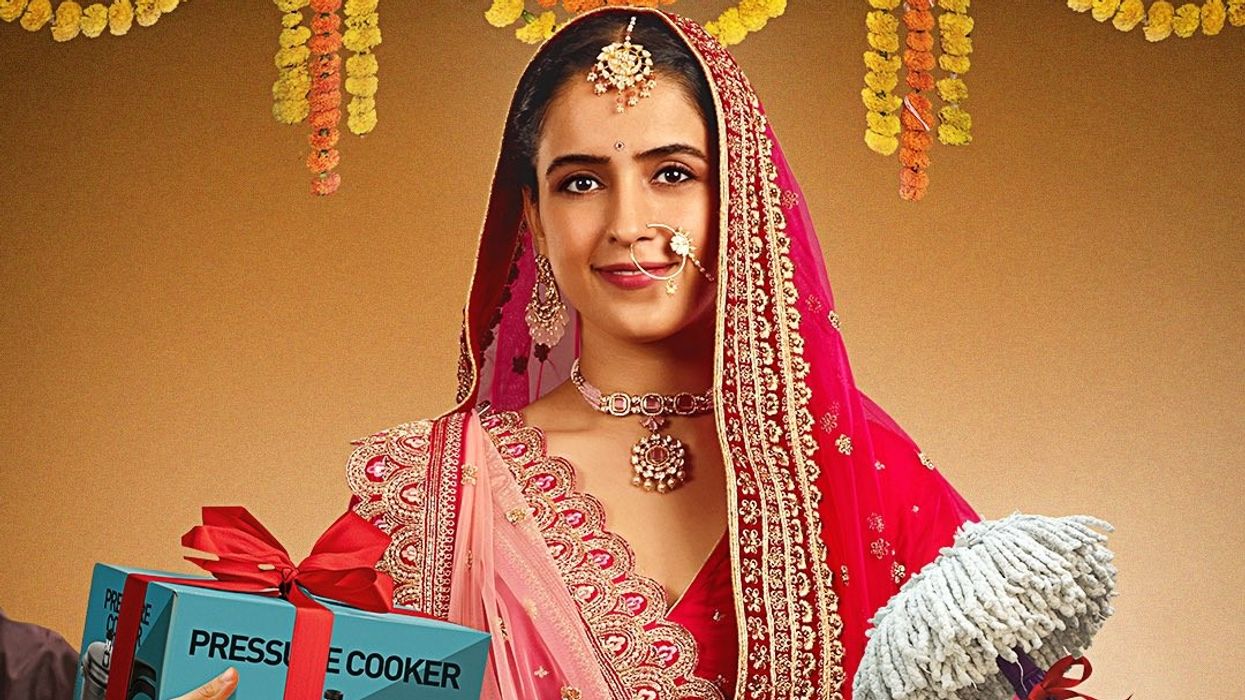A leaking kitchen pipeline. A nameless wife. Two seemingly minor details right? One physical, one symbolic, that together define the quiet oppression women endure in marriage. In The Great Indian Kitchen, the protagonist was a voiceless, faceless representation of countless women swallowed by the machinery of domestic servitude. But in its Hindi adaptation, Mrs., director Arati Kadav makes two radical changes: she names her Richa, and she gives her a metaphor that drips with quiet rage.
Director Arati Kadav transforms this persistent drip into something far more insidious—a metaphor for patriarchy itself. “It’s an old, broken system that can’t just be patched up—it needs to be replaced,” she explains. The leaking pipeline isn’t just a household inconvenience though; it’s a rotting structure that forces women to clean up after a system they did not create. And the lack of a name? That’s how the world ensures they remain invisible while doing it.
The burden of an unfixed system
The kitchen, long romanticised as the “heart of the home,” is in fact a space of relentless labour for women. The leak in Mrs. is more than just a maintenance issue rather it is patriarchy itself. A system that cannot simply be patched up but needs to be dismantled. Richa, much like millions of women before her, is expected to adapt, to adjust, to keep wiping away the damage instead of demanding real change.
But here’s where Mrs. takes a powerful turn: Richa refuses. Unlike her predecessor in The Great Indian Kitchen, she is not just enduring patriarchy, but she is actively resisting it. The refusal to accept the leak is the refusal to accept a system that expects women to bear its burden without question.
The power of a name: Reclaiming selfhood
Yet, the fight is not just about domestic labour. It is about identity.
In The Great Indian Kitchen, the protagonist was intentionally left nameless, emphasising how marriage just erases a women’s individuality. Kadav’s Mrs. disrupts this erasure by naming its lead Richa. It may seem like a simple change, but in a world where women’s names disappear post-marriage, replaced by “someone’s wife” or “someone’s mother”, it is an act of defiance.
Naming Richa means she cannot be simply ignored. It means she is not just another cog in the wheel of tradition. It forces the world to acknowledge her as a person, not just a role.
Beyond survival: The right to refuse
Women in film are often celebrated for their resilience, their ability to endure pain and keep going. But Mrs. challenges this narrative. After all, why should strength be measured by suffering? Why must women always find ways to survive broken systems rather than demanding better ones?
Richa’s battle is not just about fixing a leak or even reclaiming her name. It’s about rejecting the very idea that she should have to fight for basic dignity in the first place. Mrs. doesn’t just tell a story of oppression; it shows the exhausting cycle of resistance and resignation, a reality many women know too well.
But Richa’s journey is different. She does not wake up to cook again. She does not clean up the leak. She does not fade into silence.
She demands more.
And in doing so, Mrs. becomes more than a remake. It becomes a manifesto. A reminder that change begins with the refusal to accept the leaks and the courage to say your own name out loud.





